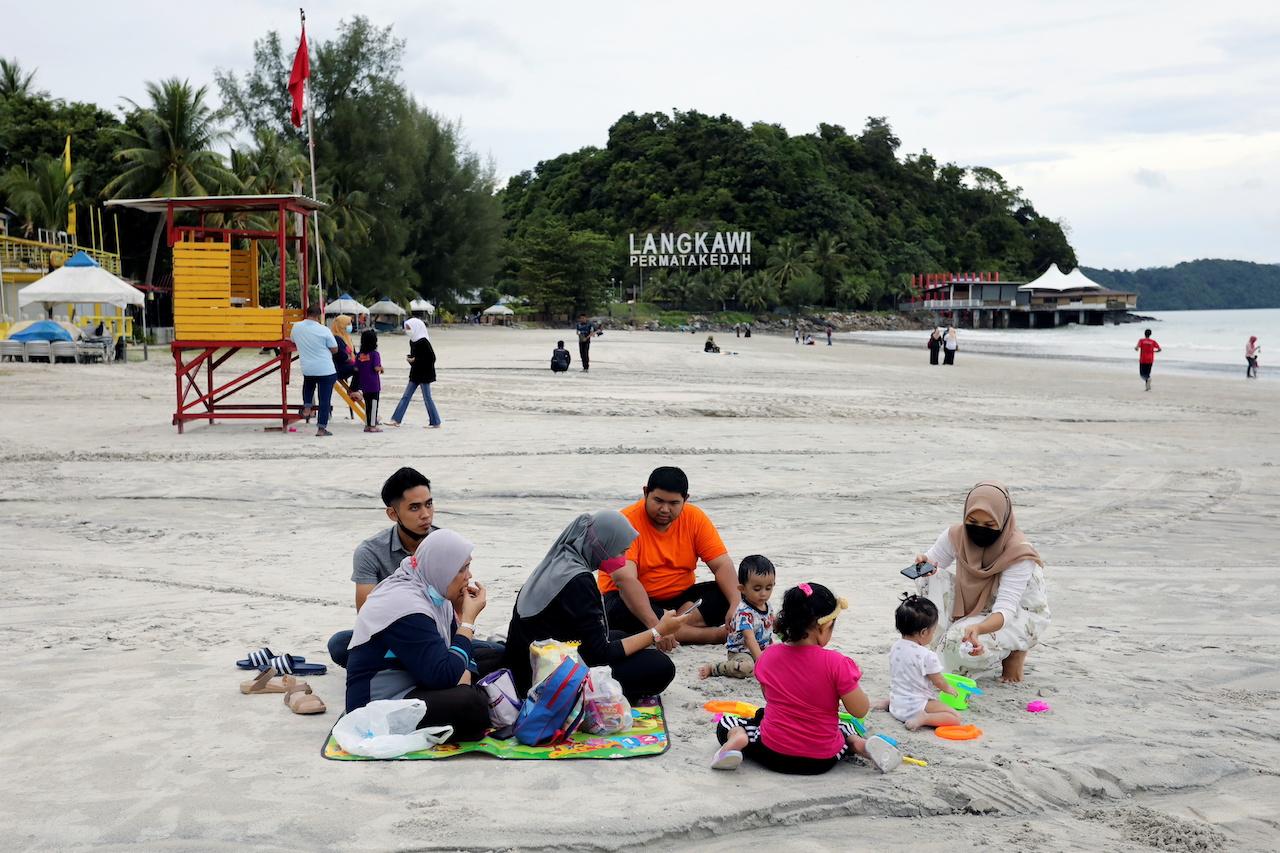Fearing tourist flight, industry players eager to replicate Langkawi re-opening
They point to Langkawi as a litmus test for opening up vacation spots with strict SOPs in place.
If Langkawi succeeds in jumpstarting its local tourism sector in line with health SOPs and without a fresh spike in Covid-19 cases, more tourist spots should also reopen, industry players say as the holiday island begins welcoming domestic visitors for the first time in months under a pilot travel bubble programme.
Fathir Badri, CEO of the National Tourism Foundation, said if Malaysia lags in reopening its tourism sector, foreign tourists may move to other vacation spots in the region such as Singapore and Indonesia.
“Malaysia has strong eco-tourism thanks to its rainforests, waterfalls and islands. We also have a modern lifestyle which suits those planning for luxury holidays,” he told MalaysiaNow.
He added that Malaysia is among the more developed Muslim countries where halal food is easily available, making it a magnet for the lucrative Middle East tourist market.
“If we are slow to act, I fear that tourists will ‘run’ to other locations, which will take a toll on foreign investment.”
Fathir said reopening the tourism sector would also boost Malaysia’s economic recovery from the effects of the Covid-19 pandemic.
Before the pandemic hit, he said, the tourism sector was one of the largest contributors to gross domestic product (GDP).
“The tourism sector chain is very wide,” he said. “Every activity related to this industry has an impact on other sectors such as retail, hospitality and food and beverage.
“The longer the tourism sector remains closed, the more slowly the economy will grow.”
The tourism sector contributed RM240.2 billion or 15.9% of GDP in 2019, an increase from RM220.4 billion or 15.2% the year before.
But it was one of the worst affected by the Covid-19 crisis which caused many related businesses in the industry to lose their source of income as well.
The twin health and economic crises also saw many workers let go as their companies could no longer afford to pay their salaries, including staff at SMEs, hotels and travel agencies.
Fathir said Malaysia had nearly 10,000 travel agencies before the arrival of Covid-19. Now, only about a third remain active.
“The longer the tourism sector remains closed, the more slowly the economy will grow.”
Meanwhile, some 120 hotels across the country have been forced to shut down.
Welcoming Prime Minister Ismail Sabri Yaakob’s recent announcement that Langkawi would reopen to domestic visitors who have completed their vaccination, Fathir said this was the right move.
He said Langkawi could be seen as a litmus test to monitor the impact of opening the tourism sector and the effectiveness of the SOPs.
“If it works, perhaps Malaysia will be ready to reopen more vacation spots and to welcome foreign tourists once again, restoring the sector to its pre-pandemic days,” he said.
He said quarantine periods could be imposed for foreign tourists such as were put in place at Phuket in Thailand where visitors from overseas are isolated for 14 days upon arrival.
He said it was also important to achieve herd immunity to convince foreign visitors of Malaysia’s commitment to tackling the Covid-19 crisis.
“This, coupled with Health Minister Khairy Jamaluddin’s announcement that we will eventually enter an endemic phase of Covid-19, shows that the virus will not disappear anytime soon.
“So we need to convince foreign tourists that it is safe to come to Malaysia, by demonstrating our resolve to adhere to SOPs as well as the rate of vaccination in the country.”
MalaysiaNow previously reported that hotels and resorts in Langkawi had received thousands of bookings following the government’s announcement the resort island would reopen to visitors as part of a travel bubble scheme to restart the tourism industry.
The Langkawi Tourism Association said hotels registered with it received some 6,000 bookings, and expects to make about RM24 million in the first three days from Sept 16 with the arrival of some 24,000 tourists.
Subscribe to our newsletter
To be updated with all the latest news and analyses daily.
